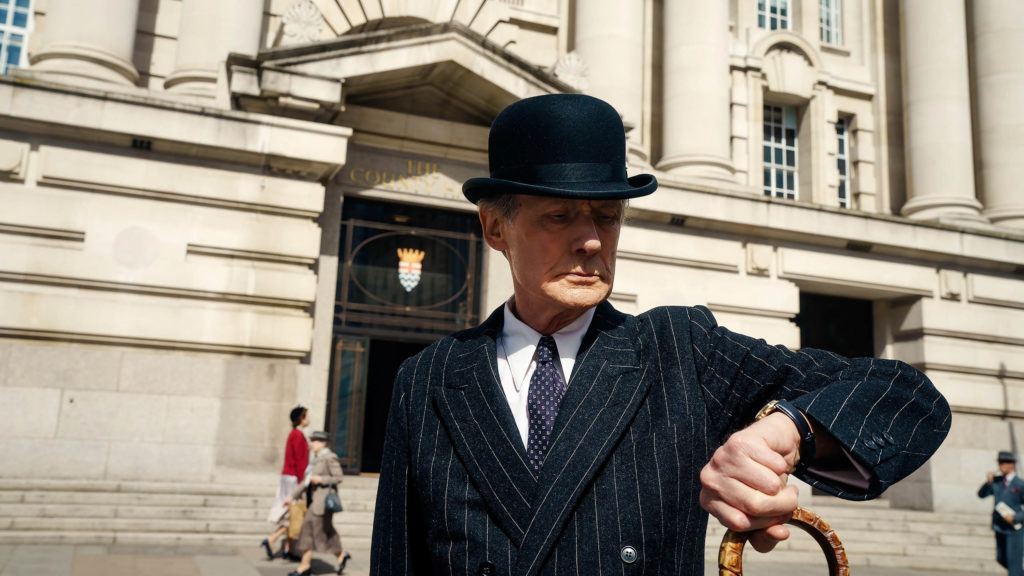Living

Bill Nighy appears in LIVING by Oliver Hermanus, an official selection of the Premieres section at the 2022 Sundance Film Festival. Courtesy of Sundance Institute | photo by Number 9 Films/Ross Ferguson.
Few actors today would be so suited to match the wan stare of Kanji Watanabe (Takeshi Shimura) in Akira Kurosawa’s IKIRU. Bill Nighy, however, captures it perfectly in Oliver Hermanus’ LIVING—an adaptation of the former.
Ronald Williams (Nighy) is a bureaucrat in London, who plods through his days stacking up piles of paperwork at his desk like a fortress protecting him from the futility of everyday office politics. The story opens through the eyes of a newcomer, Mr. Wakeling (Alex Sharp), who, from his brief conversation with coworkers on the train into town, to his encounter with Margaret Harris (Margaret Lou Wood) at the office, learns quickly that the squeaky wheel does not get the grease.
Mrs. Harris intimates, “If your skyscraper isn’t very tall—god forbid you work so fast that you don’t have one at all—people will suspect you don’t have any important work to do.”
If piles of paper are skyscrapers, then Mr. Williams is downtown. Insular and enigmatic, his behavior evokes a kind of Kane-like aura of intrigue. Facing his doctor’s diagnosis of terminal cancer, he grapples with whether or not to tell his son who, when he sees his father’s defeated appearance, doesn’t think to ask what’s wrong.
At a Cakes & Buns shop, he counters a Mr. Sutherland, a writer who’d spent his youth in Paris, at the Moulin Rouge, “Born beyond reach, but here hope still lingers.” Mr. Williams trades his medications for advice on how to live out his remaining days to the fullest. After a night at the carnival, with some liquid courage, he breaks out of his shell and into song at the bar—an old Scottish tune, “The Rowan Tree.”
But it’s his lunch at Fortnam’s with Mrs. Harris, the following day, where we unwind the mysteries about his life, his youth, and his ambition to be a gentleman in the classical sense. She’s acquired a new job.
“County Hall’s not for everyone,” Mr. Williams says. He offers to write her reference over a meal while they reveal themselves to each other. Unable to tell his son, Michael, who now suspects him of cavorting around with the younger woman, Williams the elder later confides to Mrs. Harris, “I didn’t notice what I was becoming, and then I looked at you and I remembered what it was like to be alive like that.”
It’s fitting that in both Japanese and English culture, appearances and politeness take the same precedence over other matters—to a fault. It’s another kind of bureaucracy that plagues social interaction and family affairs. Imagine not telling your children that you’re dying, because you don’t want to be a bother.
LIVING reminds us that there are matters more important than routine and custom. Shot in a square frame aspect, cinematographer Jamie Ramsay uses depth within the confines of the picture in a style similar to Toland’s work in CITIZEN KANE. Apropos, there’s a kind of Kanesian riddle to unpack about Mr. Williams. What’s his Rosebud, we wonder.